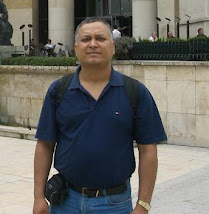Yoshio Hanada (Yomiuri Shimbun Correspondent), Japan
KATMANDU--Nepal's King Gyanendra expressed displeasure Monday over the recent decision by the country's lawmakers to abolish the monarchy, saying: "[The decision] doesn't reflect the majority view of the people. This isn't democracy."

The king's remark was in reference to the December decision by the seven major parties comprising the interim government to abolish the monarchy after a constituent assembly election scheduled to be held on April 10.
Speaking to several Japanese reporters at the royal palace, Gyanendra, apparently unable to reconcile himself to the end of a dynasty that has lasted about 240 years, said, "They [the people] have the right to choose the fate of the monarchy."
Gyanendra has rarely appeared in public since being forced to cede his powers following weeks of public unrest in the spring of 2006. The remarks were thus a rare insight into the king's latest thoughts on his country's politics.
"Some leaders have tried to take action that was against cultural, social and traditional values," Gyanendra said, in an apparent criticism of the Maoist party leadership, which is at the forefront of moves to abolish the monarchy.
The king also pointed out that law and order is deteriorating, questioning the interim government's ability to govern.
Mentioning the recent survey conducted by a local research institute, which showed 49 percent of respondents favored the continuation of the monarchy in some form, Gyanendra said: "A majority of the people find great meaning in the institution of the monarchy. In all clouds, there is a silver lining. Let us hope."
Gyanendra took the throne in 2001 after his brother, King Birendra, and eight other royals were shot dead by the then heir to the throne, Dipendra. Gyanendra tightened control through such actions as the dissolution of the parliament in 2002.
However, he gave in to mass protests led by the Maoists and other major parties in April 2006, declaring a return to multiparty democracy.
An interim Constitution that was approved in January 2007 stripped political power from the king. (Feb. 7, 2008)



































No comments:
Post a Comment